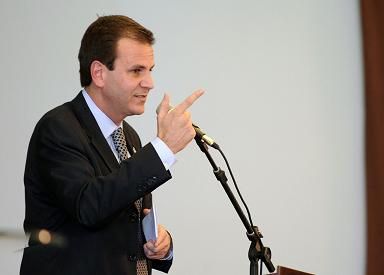Global coalition launched at UN summit to drive carbon cuts
Coalition includes the C40 Cities, ICLEI and United Cities and Local Governments and is intended to drive aggressive carbon cuts

A global coalition of cities and leading NGO's was launched at the UN Climate Summit in New York this week that will support 2,000 cities in cutting their carbon emissions.
The Compact of Mayors includes the C40 Cities Climate Leadership Group, ICLEI – Local Governments for Sustainability and United Cities and Local Governments and is intended to drive aggressive carbon cuts through public, annual emissions reporting.
The Compact was launched in conjunction with the unveiling of new research, conducted with Arup, which found existing city commitments alone could reduce annual emissions by 454 megatonnes carbon dioxide equivalent in 2020 – a total of 13 gigatonnes CO2 by 2050.
Other research, led by former New York mayor Michael Bloomberg, and currently the United Nations’ Special Envoy for Cities and Climate Change, also found that the world’s cities could move to increase reductions by an extra eight gigatonnes a year by 2050 and have the capability to reduce emissions by more than 140 gigatonnes by 2050 – the first time the collective carbon reduction potential of cities has been measured.
Bloomberg said: “Cities are key players in the global fight against climate change – and this research measures, for the first time, the huge difference they can make together. Despite the progress they are making, and their potential to do much more, cities are rarely included in national climate plans. This research can help change that – and encourage nations to set higher goals for reducing emissions – by showing how much their cities can contribute.”
The Compact will help regions, nations and financial institutions understand the potential impact of local climate actions and where they can offer support, such as funding mass transit systems and energy efficiency measures.
Juergen Nimptsch, mayor of Bonn and a leader in ICLEI mayors network, said: “The Compact is more than a new political commitment. It is an additional locomotive to speed up and scale up transformational climate actions that the world urgently needs right now.”
The key focus areas of the Compact include building energy efficiency standards for new urban buildings; building energy retrofits for existing urban buildings; aggressive energy performance standards for urban building lighting and appliances; transportation mode shifts and transit efficiency for city residents.
Eduardo Paes, Mayor of Rio de Janeiro and chair of C40 Cities, said: “From Rio to Seoul, mayors are not waiting to take decisive action to combat global climate change and prepare for the ill effects it will bring. We are forging ahead with innovative solutions that make our cities better, safer places to live and work. Leading mayors are setting the example for the rest of the world, and this new research shows what could be achieved if all cities and our national governments now followed suit.”





_400_250_80_s_c1.jpg)
